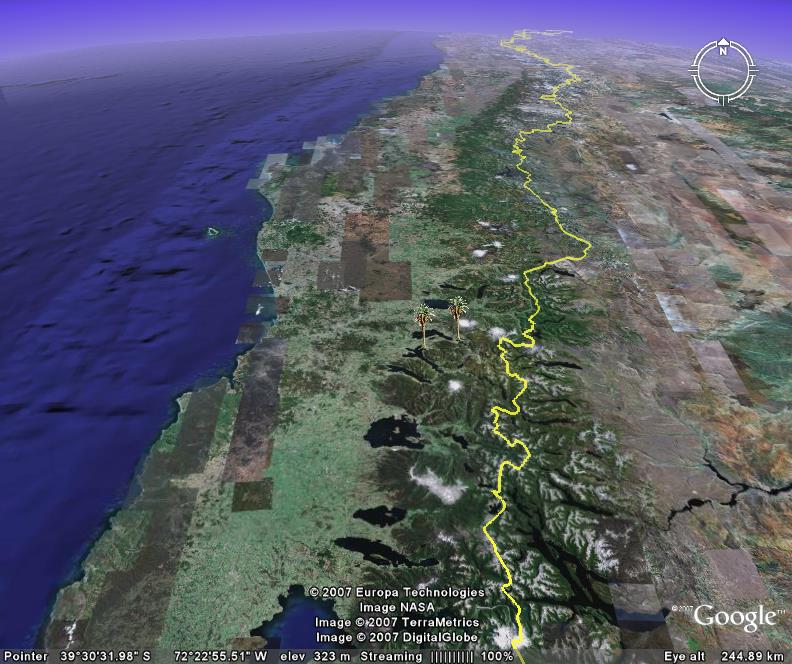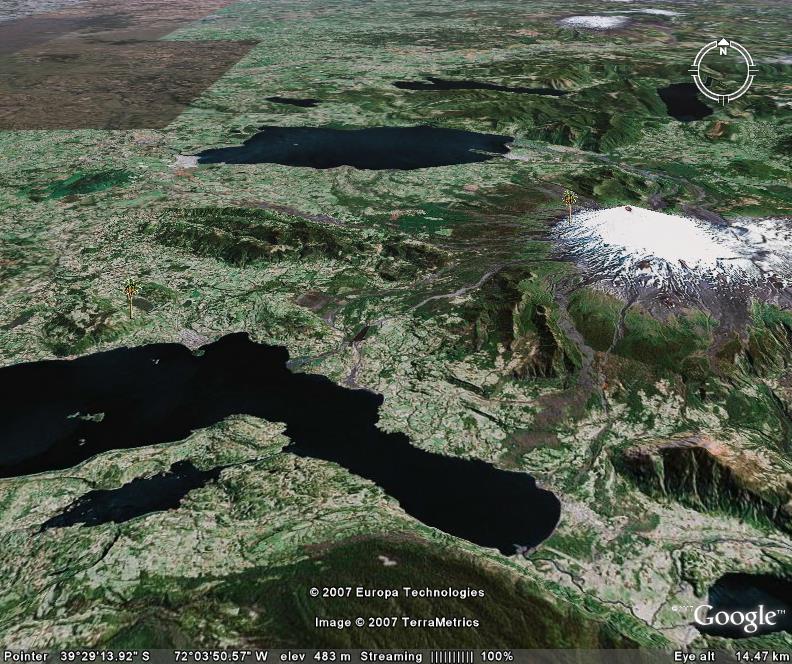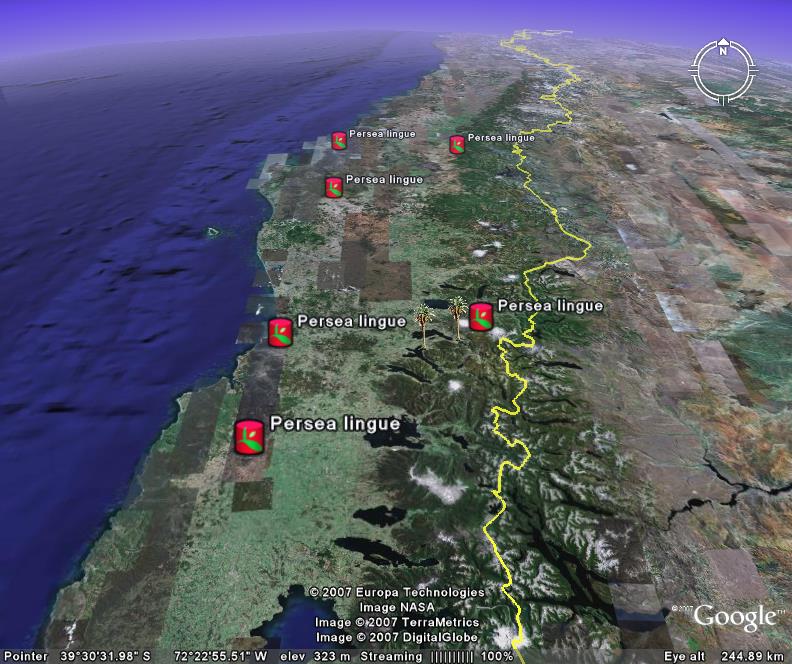A post in Google Earth Blog alerted me to the great efforts by staff and students at the Faculty of Agronomy and Forest Engineering at the Pontificia Universidad Catolica de Chile to geo-tag the specimens in their herbarium. They’ve produced a Google Earth kml file to show hundreds of collecting locations throughout the country. Below are the localities of Persea lingue, a congener of the avocado, though I’m not sure how closely related they are. It’s threatened, according to IUCN, and indeed there’s only a couple of specimens in the herbarium, quite near each other:
And here’s a close-up:
It’s not that easy to see the icons, but you can click on the image to see a bigger version. One locality is just to the north of the northern shore of the big lake on the left, almost in line with the small island. The second is on the upper western slopes of the volcano on the right.
But here’s the thing. If you go to GBIF and look for this species, there’s additional data from specimens at the Missouri Botanical Garden, and this is what you get:
Quite a different picture, though of course the Missouri specimens could be old, but even that would be interesting: have those populations disappeared? 1 That’s the benefit of sharing, or pooling, information. Other people’s data can add value to your data. The value of the pooled dataset is greater than the sum of the values of each dataset on its own. That’s the power of things like GBIF, and SINGER.



It’s never too much to point out and stress the mutual benefits arising out from sharing data and information, provided they are in the public domain!!
Besides GBIF and SINGER I would like to point out another initiative, at regional level (Europe) called EURISCO which is a search web catalogue that automatically receives data from a network of National Inventories. EURISCO, a single entry point, provides access to ex situ PGR information in Europe, facilitating the locating and the accessing of PGR
Good point, Eliseu. EURISCO is online at http://eurisco.ecpgr.org.